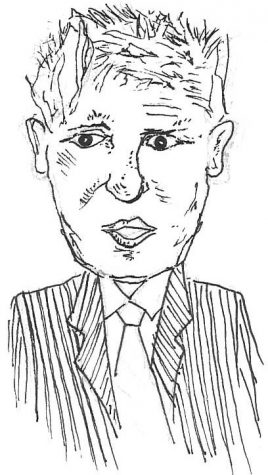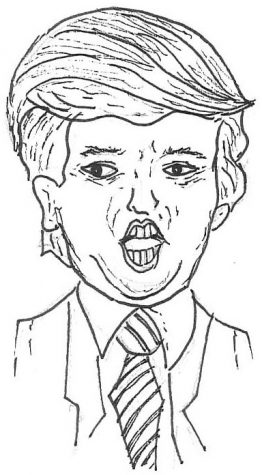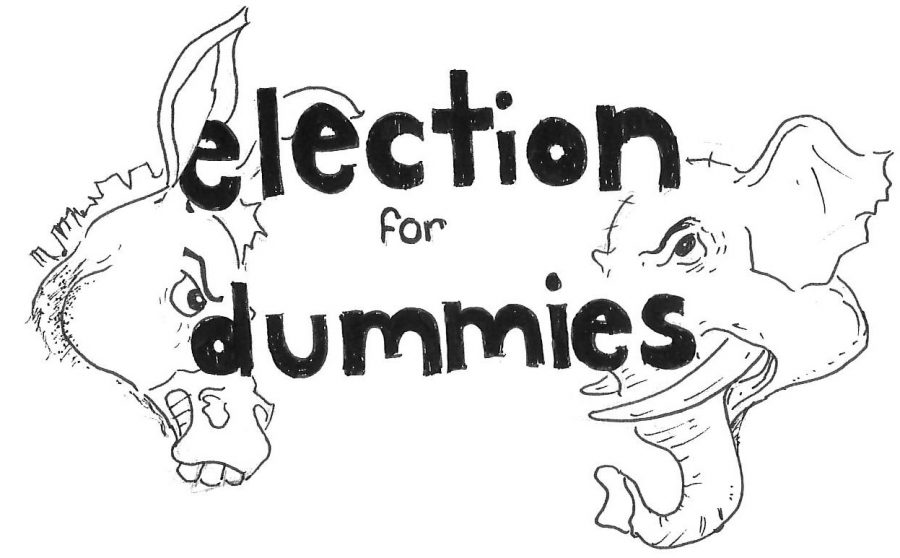Election for Dummies
Credit: Lei Anne Rabeje
October 23, 2016
HILLARY R. CLINTON
Economic Policy:
Hillary Clinton supports the implementation of tax cuts to the middle class and small businesses, along with paid leave, as reported by The Balance. She proposes allocating $27.5 billion to infrastructure development, which she claims is in disrepair. She recently expressed support for a $15 minimum wage, and prop
osed a raise in tax for the top brackets, whilst reducing those in lower income groups.
Foreign Policy:
Labeling Vladimir Putin a “bully,” Clinton has been dubious of relations with Russia. She claimed that in office she would stand up to Russian expansion and aggressive efforts. In an interview with CBS, Clinton explained she would not combat the Islamic State with ground troops, but instead supply Kurdish and Arab forces already in conflict. She has generated a plan to coordinate an international digital effort to identify and combat terrorist activities online and on social media. Having apologized for voting for the 2003 invasion of Iraq, Clinton has since recanted her support.
Social Policy:
Clinton is a full advocate of equal marriage rights and women’s right to choose. When speaking on immigration, she called for massive reform to open paths to citizenship and increase productivity. A supporter of Obama’s Affordable Care Act, she has planned to expand upon it and include laws restricting out-of-pocket payments and drug price hikes that have manifested recently in the highly publicized EpiPen controversy.
GARY E. JOHNSON
Economic Poli cy:
cy:
Gary Johnson, a fiscal libertarian, has advocated for a 43% cut in U.S. budget in order to reduce national debt growth, and the abolishment of the Federal Reserve. He has also called for the elimination of corporate tax, claiming it would create more jobs for U.S. citizens. He promotes deregulation by the government over the economy, promoting a free market ideal.
Foreign Policy:
Johnson has supported signing the Trans-Pacific Partnership (TPP), but believes that U.S. should not have any foreign intervention, such as recent involvement in the ongoing conflict in Syria. He believes that it wo
uld only worsen the matter and negatively affect the nation.
Social Policy:
According to OnTheIssues, Johnson has supported abortion and marriage rights, explaining that the government has no right to intervention. He believes in expanding immigration rights an
d citizenship status to more people. He has advocated for marijuana legalization and a free market model for healthcare.
DONALD J. TRUMP
Economic Policy:
According to his campaign website, Donald Trump plans to reduce the current seven tax brackets into three tax brackets, cutting taxes overall and adding further tax exemptions for childcare and business. He recently explained that he advocates for the end of current trade deals and renegotiations that would benefit American jobs and businesses.
Foreign Policy:
The Wall Street Journal explains that Trump has supported Putin and Russia, praising the President. However, his opinions of China and Mexico were far less fond.
He has supported tariffs on Chinese goods and labeled China a currency manipulator. Similarly, he has shown little interest in maintaining NATO alliances. In the Middle East, Trump has reprimanded Hillary Clinton and Congress for their decision to invade Iraq in 2003, and has recently proposed his plan to combat ISIS by “bombing the s***” out of their oil fields.
Social Policy:
Trump has been a supporter of states’ rights, disagreeing with the Supreme Court decision on marriage equality and advocating for the shutdown of Planned Parenthood. He has called for a ban on all Muslim immigrants, mass deportation of illegal immigrants by force, and profiling mosques for potential terrorist activities. He has supported the Second Amendment, but believes in common sense gun laws. He has repeatedly disavowed the Affordable Care Act, and proposed a plan to remove interstate borders for insurance companies, along with a complete repeal of the ACA.

